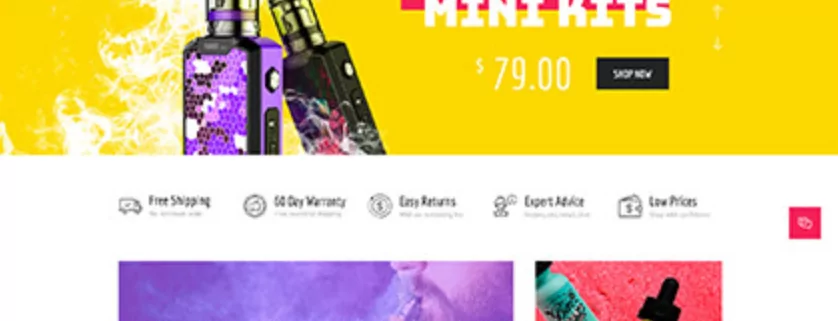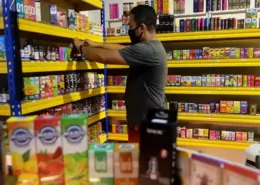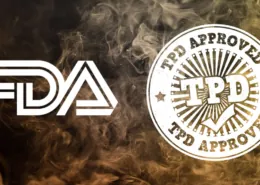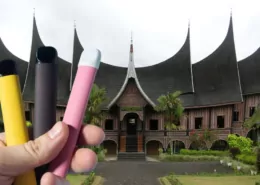Philippines Plans to Halt E-cigarette Sales on E-commerce Platforms
The Department of Trade and Industry (DTI) in the Philippines is taking a decisive step to regulate the sale of electronic cigarette (e-cigarette) products through e-commerce platforms. In an effort to ensure compliance with the relevant laws governing these products, the DTI is preparing to issue an instruction to platforms such as Shopee, Lazada, Facebook Marketplace, and TikTok Store, demanding a halt in e-cigarette sales until proper inspection mechanisms, including age verification systems, are implemented.
The Call for Better Compliance
Currently, one of the significant concerns is the absence of an age verification system on these e-commerce platforms. Ruth Castelo, the Deputy Minister of DTI, expressed the urgency of addressing this issue, stating, “We have engaged with them and told them that they need to fix their age verification systems and ensure that the sale of e-cigarette products complies with the law. But when will that be? Until now, they have yet to address these issues.”
Mandating a Suspension
To tackle the challenge of non-compliance, the DTI is proposing a firm approach—mandating the suspension of e-cigarette product sales until the age verification system issue is resolved. By doing so, the department aims to safeguard against the sale of these products to minors and ensure responsible practices among sellers.
Extending the Regulation
The e-commerce platforms affected by this regulatory move include major players like Shopee, Lazada, Facebook Marketplace, and TikTok Store. By bringing these platforms under the scope of regulation, the DTI aims to create a level playing field for all sellers, promote responsible practices, and protect consumers, especially the youth.
Formal Regulation on the Horizon
Marcus Valdez II, the Director of DTI’s Consumer Policy and Advocacy Bureau, confirmed that a departmental directive will be issued to formalize and regulate this policy effectively. This directive will establish clear guidelines for e-commerce platforms and sellers to adhere to the laws related to e-cigarette sales.
Monitoring the E-commerce Landscape
Since the implementation of the “Vaporized Nicotine and Non-Nicotine Products Regulation Act” (Republic Act No. 11900) in December 2022, the DTI has been actively monitoring online e-cigarette shops. The statistics reveal that out of the 37,808 shops monitored, only 274 were found to be fully compliant, 1,649 were non-compliant but had valid addresses, while a staggering 35,885 were compliant but failed to provide addresses.
Crackdown on Non-compliant Shops
As of the end of June, DTI reported confiscating 1,503 e-cigarette products from non-compliant shops, totaling a value of 4.56 million pesos (approximately 60,000 yuan). The enforcement actions demonstrate the government’s commitment to cracking down on sellers who do not meet the required standards.
Penalties for Offenders
The DTI is serious about enforcing compliance with the e-cigarette regulations. Establishments and retailers caught selling e-cigarette products to minors for the first time will face a fine of 10,000 pesos (around 1,300 yuan) or imprisonment for up to thirty days, at the discretion of the court. Repeat offenders will receive the same fine, while non-compliant business entities will have their licenses or permits revoked.
Registration is Key
To ensure better oversight and accountability, both physical and online stores must register with the government before selling e-cigarette products. Violators of this registration requirement will be subject to fines of 100,000 pesos (about 13,000 yuan) for the first offense and 200,000 pesos (about 26,000 yuan) for the second offense. For third-time offenders, a substantial fine of 400,000 pesos (about 52,000 yuan) will be imposed, along with the revocation of their business licenses.
- Minneapolis Sets $25 Minimum Price for E-Cigarettes - July 11, 2025
- Alabama Schools to Implement New Anti-Vaping Policies - July 11, 2025
- Is Vaping and Driving Illegal in Rhode Island? (2025 Guide) - July 10, 2025









